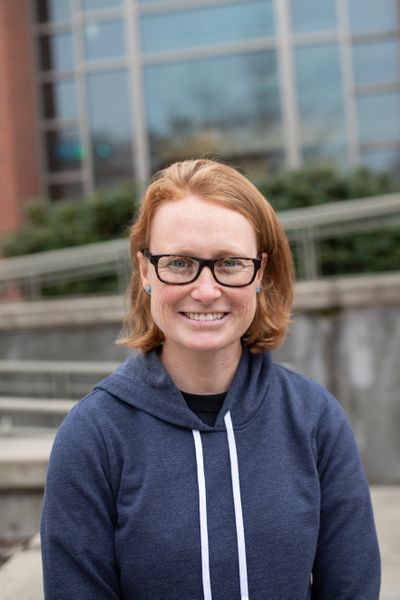Faith and Values: We want to know how your congregation has changed during the COVID-19 pandemic

About this time last year, Spokane Hindus and Muslims were worshiping in our newly opened FāVS Center and Christian groups were calling, hoping to also gather in the sacred space we had created.
Then, COVID.
My heart sinks when I think of how quiet and empty our faith and nonfaith community center has been since last year’s Holi Festival. That day, over 100 of us (Hindu and not) danced on our 3-acre property and threw colors to celebrate the triumph of good over evil. That was our last event before everything shut down.
Now myself and a few other FāVS folks maintain the building and eagerly wait for it to be full again.
I’m not alone in feeling this way.
Clergy across Spokane, whether they’re preaching from home or from a pulpit and looking out across vacant pews, know this emptiness too well.
One year of unoccupied houses of worship, of virtual services, of online community – I can’t help but wonder how this will forever impact U.S. congregations.
I feel honored that I actually get to be part of a research team that gets to study this. It’s aptly called the EPIC project – Exploring the Pandemic Impact on Congregations: Innovation Amidst and Beyond COVID-19.
I’m working on this project as a writer with Hartford Seminary and through a $300,000 planning grant from Lilly Endowment Inc. We will be studying the impact the COVID-19 pandemic has had and will have on U.S. congregations.
My longtime friend and colleague Scott Thumma, director of the Hartford Institute for Religion Research, is the principal investigator on the project and told me the idea was born out of conversations he had with clergy who were trying to adapt their worship at the start of the pandemic.
I had these same conversations. They were often about technology, social media, copyright law, engagement, etc.
But Thumma wanted to take it further, and I’m so glad he did.
“I really felt like we needed to be systematically collecting detailed information on all the dimensions of congregational life to see how community life is changing, how social ministry is shifting, and how Christian education is adapting, because all of those could significantly alter the life of a congregation,” he said. “In the future, congregational life could end up being a different reality. We want to capture the process of how it changes and the leadership required to make this happen.”
The planning grant will fund six months of research to create a plan for a long-term study that tracks how congregations are changing, innovating and establishing new behaviors as a result of the pandemic.
What does that look like to you? I’m asking you clergy, lay people and worshipers.
Besides the obvious – church in jammies – how has congregational life changed for you? How has your faith community changed? How has ministry changed? How has your spiritual growth changed? How would you say the health and vitality of your church is now, and what do you think it will look like in the coming years as a result of the pandemic?
Also, what would you like to learn from other congregations walking in your shoes?
I genuinely want to know, and so does the EPIC team.
We reporters have done a good job covering the technological changes you’ve faced over this past year, but it goes so much deeper.
What are the unreported stories of your faith community?
Email me your thoughts at tracysimmons@spokanefavs.com.
Tracy Simmons, a longtime religion reporter, is a Washington State University lecturer and the editor of SpokaneFāVS, a website dedicated to covering faith, ethics and values in the Spokane region.